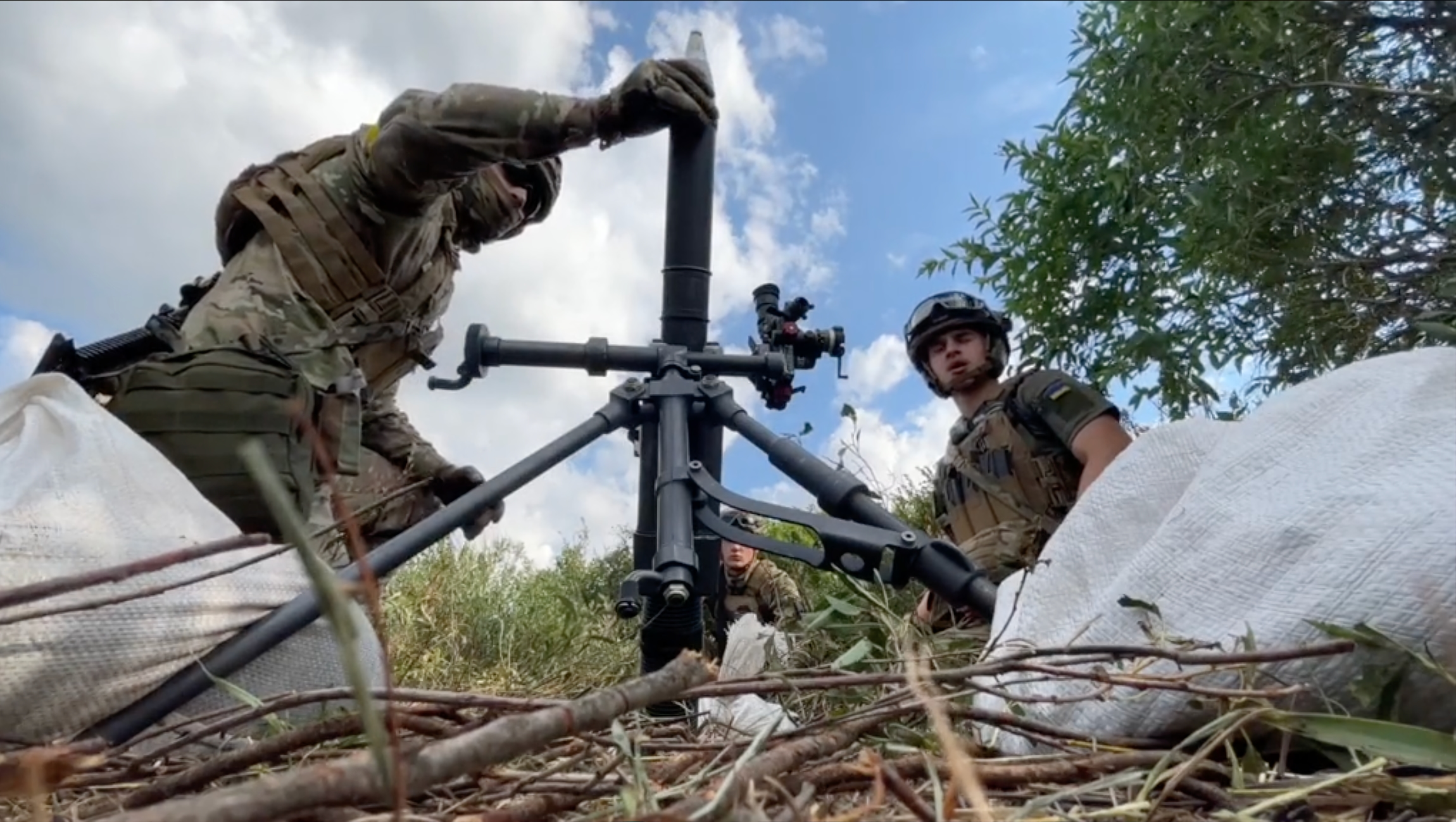AFU shoots at enemy positions with American M224 Mortar guns (video)
By: Myroslav Trinko | 29.06.2022, 15:45

A video of the Ukrainian armed forces using American M224 Mortar mine throwers at the front has appeared online. The video shows how the platoon worked on enemy positions in a few minutes, and then packed up and left. Attention! The video contains profanity.
The M224 Mortar is a lightweight 60 mm muzzle-loading, smoothbore company mortar designed for fire support of infantry units. It was developed in 1973. Since then the M224 Mortar has proven its high reliability and effectiveness. It is widely used by Special Operations Forces units, airborne troops and other formations of the U.S. Army and Marine Corps. It is operated by 2-4 people. The mortar has a range of up to 3,400 meters (depending on the projectile).
Source: OperativnoZSU
For those who want to know more
- Norway gives Ukraine 3 M270 Multiple Rocket Launcher Systems
- France gives Ukraine VAB armored vehicles: why this French APC is interesting
- The Come-Back-Alive Foundation bought 100 new pickup trucks for the APU for the amount of 2,600,000 euros
- Ukraine has received 50 Bayraktar TB2 strike UAVs since February 24
- The media showed the first video with PzH 2000 howitzers in the hands of the Armed Forces of Ukraine
- The Ukrainian Armed Forces destroyed a Pantzir-S1 missile and cannon system at Snake Island
- Armed Forces of Ukraine with the help of M777 howitzers destroyed a Russian tank (video)
- Nikolaev paratroopers shot down the Russian Ka-52 "Aligator": one such helicopter costs $16,000,000
- Germany and the Netherlands plan to transfer a new batch of Panzerhaubitze 2000 self-propelled guns to Ukraine
- UAF reconnaissance group destroyed Russian T-64 with Javelin (video)
- HIMARS multiple launch rocket systems work at night against rashists (video)
- Not only air defense IRIS-T: Ukraine plans to buy 100 Panzerhaubitze 2000 self-propelled guns from Germany
- Ukraine will buy 10 IRIS-T from Germany: this is the most modern air defense system